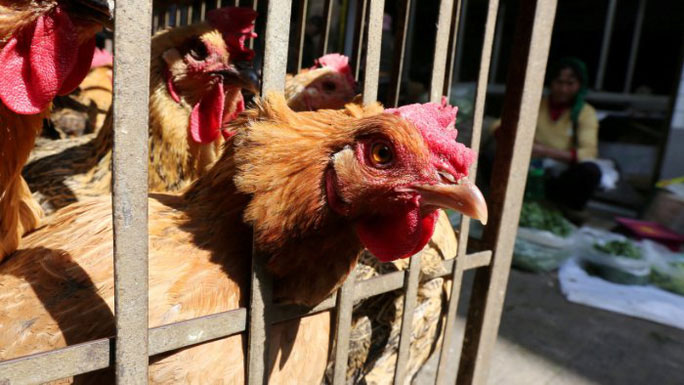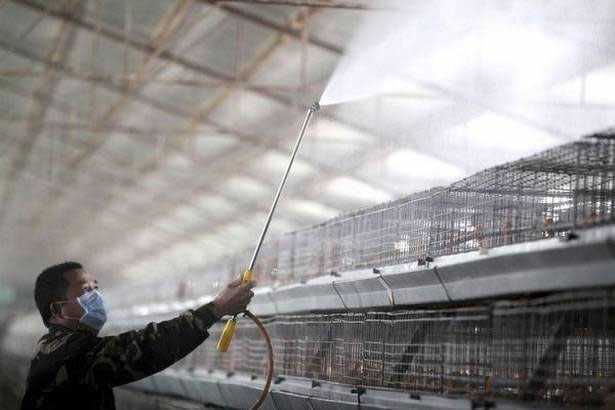Reuters reports that the National Health Commission of China (NHC) announced on June 1 that this is the first case of H10N3 virus infection in the world.
A 41-year-old man was hospitalized on April 28 after experiencing fever and other symptoms. The patient was later diagnosed with H10N3 virus. However, authorities did not disclose how the man contracted the virus.
The patient is currently in stable condition and is expected to be discharged soon. No additional cases of H10N3 virus infection have been detected among those who came into contact with this man.

A 41-year-old man in Zhenjiang City, Jiangsu Province, Eastern China, has been identified as infected with the H10N3 avian influenza virus. (Photo illustration: Reuters).
The NHC reassured that the H10N3 virus “has a low transmission potential, is relatively mild, and the risk of a pandemic outbreak is very low.”
Various strains of avian influenza have been reported in China, causing sporadic infections, typically among those who handle poultry. In 2016-2017, the H7N9 virus strain killed approximately 300 people.

Workers disinfect a poultry farm in Anhui Province, China. (Photo: AP).
Meanwhile, on May 31, China reported 23 new COVID-19 cases, an increase from 27 the day before. Among the 23 new cases, 12 were imported, and 11 were from Guangdong Province. The NHC did not report any new COVID-19 deaths.
As of May 31, China has a total of 91,122 COVID-19 cases, with the death toll remaining unchanged at 4,636.
On the same day, May 31, Beijing reimposed travel restrictions in Guangdong Province, announcing that anyone leaving the densely populated area must undergo COVID-19 testing.
Individuals leaving Guangdong Province by plane, train, bus, or car after 10 PM on May 31 must present nucleic acid test results from within the past 72 hours. Checkpoints for truck drivers have also been established on major roads.
This move comes after a “surge” in COVID-19 cases in China. On the evening of May 30, Guangdong Province reported an additional 20 COVID-19 cases. Although this number is relatively low, it still raises concerns among Chinese leaders.
China had relaxed most domestic travel restrictions after declaring “the COVID-19 outbreak has been controlled.” However, foreign travelers are still required to undergo testing.



















































